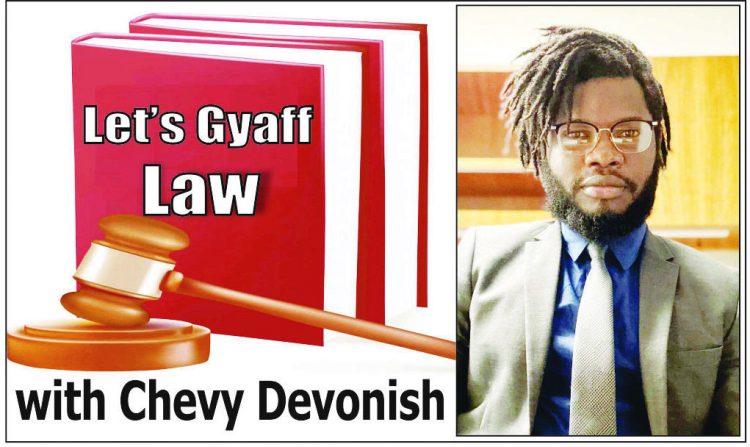 Breaking Down the Sexual Offences Act
Breaking Down the Sexual Offences Act
Generally, all hearings in Guyana’s Magistrates’ Courts and the High Court are open to the public, including the media.
This practice is intentional, and part of the principle of open justice, which requires that judicial proceedings be conducted in a transparent manner. What better way to achieve open justice than to allow observers in the courtroom as proceedings take place? This practice allows anyone interested in a specific matter (including the media), or anyone who just wants to observe random matters to sit in the galleries of the courts and observe.
In the post-Covid-19 era, Guyana’s judiciary took impressive steps toward ensuring open justice when doing so became difficult. These steps include allowing litigants, their counsel, and journalists to attend hearings remotely (via Zoom etc) and even providing live video-audio streaming of decisions of national interest, such as the decision(s) in the election petition cases.
Notably, the Caribbean Court of Justice (CCJ) and the Privy Council (PC), both apex courts, provide live video and audio streams of most of their hearings, while the Supreme Court of the United States permits live audio streams of its hearings and decisions.
Given the importance of open justice, why then does the Sexual Offences Act, Cap 8:03, Laws of Guyana (SOA) seek, through section 45, to limit access by the public, including the media, to proceedings in which individuals are charged with any offence under that SOA?
The answer lies within the section.
Section 45 of the SOA commands judges and magistrates to exclude members of the public, including the media, from hearings in which a person has been charged with an offence under the Act, except where the judge or magistrate is of the opinion that such an order is not necessary.
Where a judge orders the exclusion of the public, including the media, these hearings become private hearings, or in camera hearings.
The purpose of this restriction is to achieve any or all the following outcomes:
To ensure all relevant evidence is heard;
To ensure that the interests of witnesses under 18 years of age are safeguarded in all proceedings; and
To ensure the justice system participants who are involved in the proceedings are protected.
These reasons speak for themselves, but I will provide brief explanations on the first two considerations.
First, sexual offences matters are often, if not always highly sensitive and complex. Complainants are particularly vulnerable and may be hesitant to give evidence in the presence of members of the public or reporters, even if they are allowed to do so by a CCTV system or some similar facility.
I imagine that it is challenging enough to recall the details of a rape or other non-consensual sexual activity to lawyers, a judge/magistrate and court staff. It would undoubtedly become increasingly challenging to do so before a room of people who are there just to look on, or to wait on unrelated matters. The relative privacy afforded by private hearings therefore increases the likelihood that complainants will give evidence against the accused.
Second, sexual offences proceedings can be particularly difficult for complainants or witnesses who are minors (persons under 18 years). Section 45 works together with section 10 of the Childcare and Protection Agency Act, Cap 46:07, Laws of Guyana (CPA Act), to safeguard minors in these circumstances.
Section 10 (1) of the CPA Act states that in court proceedings involving a child, the court may exclude from those proceedings any person whose presence is not necessary. The court decides if the presence of any person is necessary.
Further, section 10 (2) of the CPA Act states that no person shall publish any information relating to proceedings involving a minor in a way which discloses:
the name or any information from which the child’s identity can be determined; and
the name of any person concerned in any matter involving a child, or any information regarding which that person’s identity can be determined.
Section 10 (3) of the CPA Act clarifies that court proceedings (under section 10(1) of the CPA Act) involve a child if the child is:
the subject of the proceedings;
a witness in the proceedings; and
a person aggrieved by or the victim of the alleged abuse or neglect in the proceedings.
Any person (including a reporter) who breaches these provisions commits a summary offence, and if convicted, can be ordered to pay $250,000.
The effect of section 45 of the SOA and section 10 of the CPA Act is that the public, including the media, should not be allowed into proceedings in which a minor is the complainant or witness in a sexual offence matter or is giving evidence in such a matter. Moreover, when the media reports such matters involving a minor, they are obligated to omit all details, including details of the accused, that could allow anyone reading the report to identify the child.
While there are good examples of reporting from various media outlets in Guyana on criminal proceedings involving minor complainants and witnesses, there are also many examples of bad, if not illegal reporting.
I have seen media reports which have published the name, photograph and or address of the minor. I have also seen reports which identify the relatives of the minor or the accused. In a small society such as Guyana, these details are more than enough to allow observers to identify the child involved. Additionally, there seems to be a view that once the accused is convicted, these details can finally be published. This view is misconceived, and I hope that reporters and media establishments take note of this.
In any case, the nuances involved in sexual offences make it clear that open trials are not appropriate for sexual offences. Indeed, in sexual offences matters, justice often requires private hearings, and restrictions on reporting, particularly where minors are involved.




